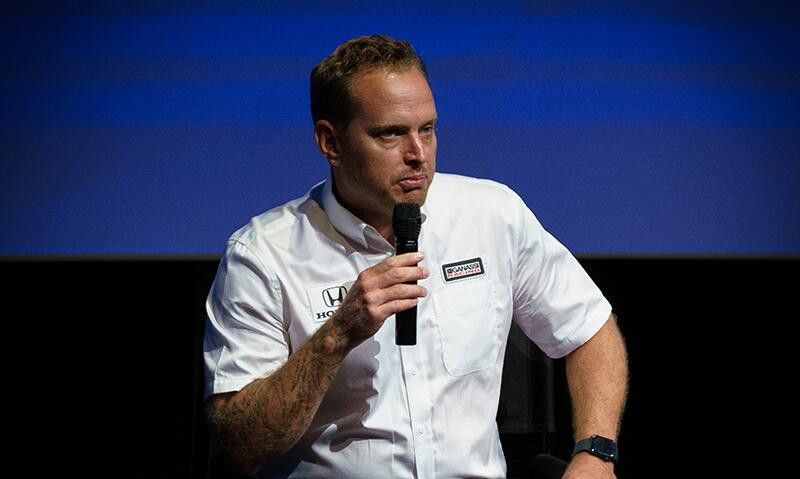
‘Ground zero’ for reducing the veteran suicide rate
Fifty percent of the U.S. population believes seeking mental health help is a sign of weakness, while the percentage is 75% for the veteran community, new research shows.
Those figures represent the challenge in combatting the escalating rate of veteran suicide. That topic and others were explored by Dr. David Rudd, a leading expert on PTSD and veteran suicide; and David Berkenfield, a retired Navy SEAL, during The American Legion’s inaugural Be the One Symposium on Aug. 28.
During their fireside chat, “The Cost of War: Stigma and Natural Consequences,” Berkenfield talked about losing his brother and fellow SEALs to suicide and what needs to happen to reduce the rate.
“What we have seen in my community in the last few years, is the continued increase of suicide,” he said. “It is starting to represent itself in our very best. These are guys who are giants as leaders. Today we are starting to feel that at a pretty significant level. This is something that means a lot to me. I will be involved with it for the rest of my life.”
The symposium, held at the NASCAR Hall of Fame in Charlotte, N.C., drew attention to Be the One, the Legion’s premier initiative that aims to reduce the rate of suicide among veterans and servicemembers. The American Legion is spreading awareness to reinforce that it is OK to not be OK, and empower everyone to take action to save the life of a veteran.
The daylong event featured leading experts in post-traumatic stress disorder, veterans suicide, various therapies and more.
CLICK TO WATCH VIDEO ABOUT THE 38 CHALLENGE WORKOUT THAT PRECEDED THE SYMPOSIUM
“This is ground zero for discussing actionable solutions to solve the problem of veterans suicide and for continuing the conversation long after we leave here,” said Amy Forsythe, a Marine Corps combat veteran, award-winning journalist and host of the upcoming Be the One podcast. The first episode will publish on Friday, Sept. 1, and each subsequent episode will also be published on the first of each month. The Be the One episodes will be available as part of The American Legion Tango Alpha Lima podcast feed.
Marine Corps veteran Waco Hoover, who directs the strategy for Be the One, assembled the panel and led several of the discussions. “The first stage of this is creating awareness, to let it be known that it is OK to not be OK.”
Rudd pointed out that “The American Legion is uniquely positioned to make a difference” in this initiative. As part of that effort, the Legion is among the key players working with USAA in its new effort, Face the Fight. The collaboration to raise awareness represent the macro level, while the work being done at the community level will directly result in saving the lives of veterans. That’s where eliminating the perceived stigma of asking for mental health treatment needs to end.
“The stigma for me is nonexistent,” said Berkenfield, a team manager for Chip Ganassi Racing. “Your teammate’s life is f------ worth it. This is not going away. The conversation needs to be made far and wide.”
While that may be a difficult conversation, the stakes are too high not have it. “We need to be comfortable with getting uncomfortable,” said Berkenfield, who deployed 20 times during his career. “There is a stigma associated with it. But you need to get over it.”
American Legion National Commander Vincent J. “Jim” Troiola shared his experiences of hearing stories of veteran suicide during his travels throughout the nation. “It’s not as easy as it sounds,” he said, referring to Legionnaires sharing their stories of loved ones lost to suicide or those at risk of hurting themselves.
“The families of these veterans at risk need as much help as the veteran does,” he said. “He or she does something or sees something that traumatizes them, then they come home. And the family does not know what to do. So when you are working Be the One, you also need to keep in mind the families. They are dealing with this, too.”
Troiola estimated that more than 100 Legion Family members have shared similar stories. “It’s everywhere,” he said, pointing to how American Legion posts can serve their communities as resource centers.
“Identify every single resource you can find,” he advised. “And make sure that no matter how small of a help that is, you get the veteran the resources as soon as possible. That could mean the difference between life and death.
“One veteran at a time. That is what it is all about.”
